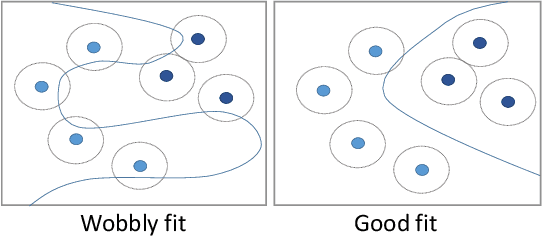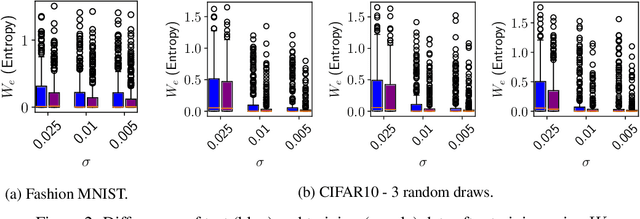A new measure for overfitting and its implications for backdooring of deep learning
Paper and Code
Jun 18, 2020



Overfitting describes the phenomenon that a machine learning model fits the given data instead of learning the underlying distribution. Existing approaches are computationally expensive, require large amounts of labeled data, consider overfitting global phenomenon, and often compute a single measurement. Instead, we propose a local measurement around a small number of unlabeled test points to obtain features of overfitting. Our extensive evaluation shows that the measure can reflect the model's different fit of training and test data, identify changes of the fit during training, and even suggest different fit among classes. We further apply our method to verify if backdoors rely on overfitting, a common claim in security of deep learning. Instead, we find that backdoors rely on underfitting. Our findings also provide evidence that even unbackdoored neural networks contain patterns similar to backdoors that are reliably classified as one class.
 Add to Chrome
Add to Chrome Add to Firefox
Add to Firefox Add to Edge
Add to Edge